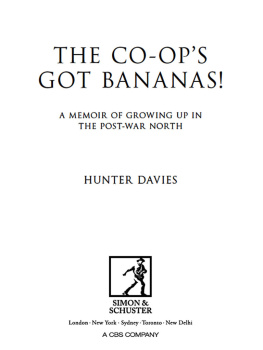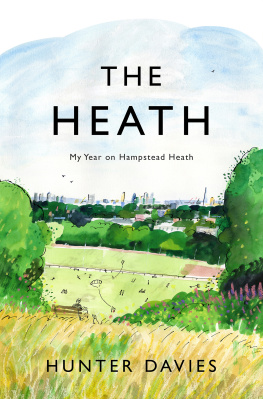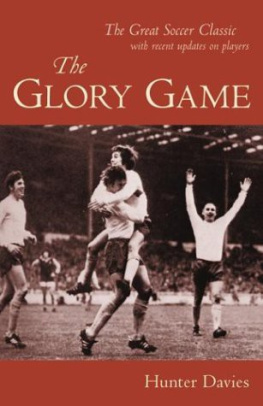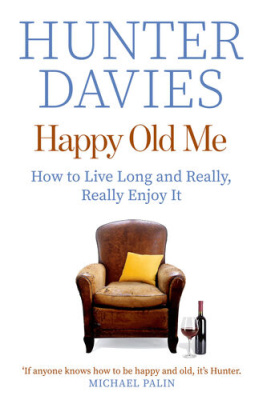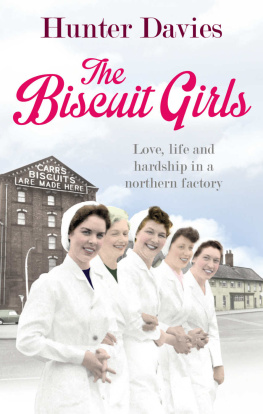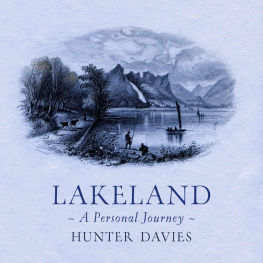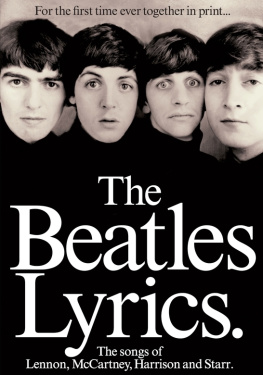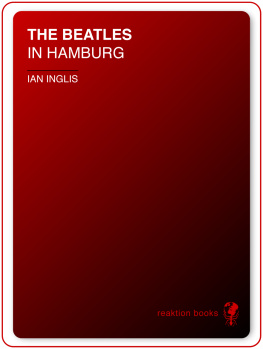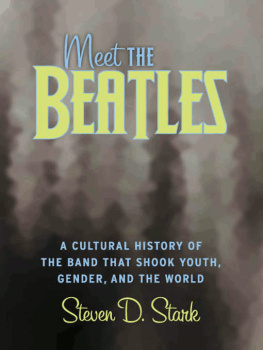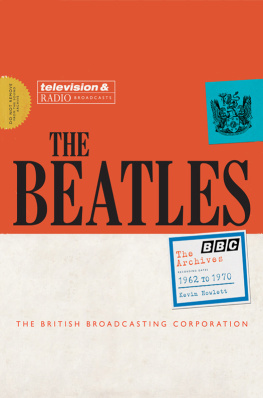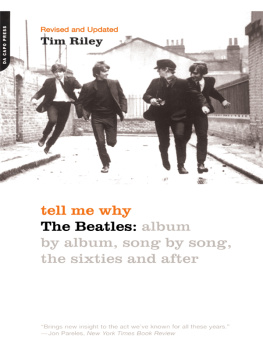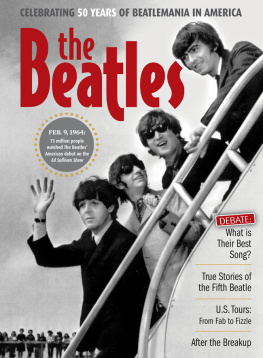This eBook is copyright material and must not be copied, reproduced, transferred, distributed, leased, licensed or publicly performed or used in any way except as specifically permitted in writing by the publishers, as allowed under the terms and conditions under which it was purchased or as strictly permitted by applicable copyright law. Any unauthorised distribution or use of this text may be a direct infringement of the author's and publisher's rights and those responsible may be liable in law accordingly.
Hunter Davies has asserted his right to be identified as theauthor of this Work in accordance with the Copyright, Designs andPatents Act 1988
This electronic book is sold subject to the condition that it shall not by way of trade or otherwise, be lent, resold, hired out, or otherwise circulated without the publisher's prior consent in any form other than that in which it is published and without a similar condition including this condition being imposed on the subsequent purchaser
The Random House Group Limited Reg. No. 954009
introduction
It was 40 years ago today well, roughly that this book first appeared. It came out in 1968 and I never thought it would still be in print all these years later. The bulk of the book is how it was then, fresh from their mouths, unchanged, unvarnished, a record of what they were thinking and doing in the 1960s and how they got there. It's now looked upon as what's called a 'primary source', which mainly seems to mean that others feel free to lift quotes and stuff from it because, of course, so many of the characters are no longer around to give interviews. I've resisted the temptation to rewrite or change the original book, polish and burnish it with the benefit of hindsight, which, of course, would make us all cleverer and smarter than we were at the time.
But here, at the beginning of the book, I have added new material, trying to bring their story roughly up to date and reflect recent events, and also to explain how I got to write the book in the first place. Then at the end I've added some notes and thoughts on people mentioned in the book whom I met, both when doing the book and later, but who are now dead.
In preparing to do this new edition, I was looking through my old Beatles archives and records and memorabilia which of course are growing all the time, as I'm still a mad, daft collector of anything Beatly when I came across a handwritten lyric I had completely forgotten about.
It's in George's handwriting, which all true Beatles fans will recognise, but it's not a song that he ever recorded, or perhaps even put music to, as far as I can discover.
On the reverse side are instructions on how to reach Brian Epstein's country house in Sussex, written in Brian's hand, which he had presumably given to George. So as a piece of Beatles memorabilia it has double interest.
George's eight lines are as follows, as he wrote them:
Im happy to say that its only a dream
when I come across people like you,
its only a dream and you make it obscene
with the things that you think and you do.
your so unaware of the pain that I bear
and jealous for what you cant do.
There's times when I feel that you haven't a hope
But I also know that isn't true.
There's only one crossing out, a stray 's' on the first 'that', which would suggest it wasn't the first draft. I'm sure in a final draft he would have inserted the missing apostrophes in words like 'youre', as of course he did go to grammar school. It reads a bit like teenage angst, perhaps written some years earlier and which he happened to have lying around the day I asked him for an example of his writing.
I now can't remember when exactly he gave it to me, or what he said about it, but working back, it must have been sometime early in 1967 when I visited him at his house in Esher. He would then have been aged 23 or 24.
I had asked John and Paul for examples of their writing, some of their own lyrics, to use in the book, and I did the same with George, which is why he gave me these lines. Later on, though, George gave me a better example, his handwritten lyrics of 'Blue Jay Way', which of course did become a Beatles song (on Magical Mystery Tour). It was obviously more suitable and interesting than the scrap he had given me earlier, so I never used that scrap in the book or its later editions, just shoved it in a drawer and forgot about it. Until now. Too late of course, to ask George what the inspiration was when he wrote it, where the lines came from, whether he ever put it to music.
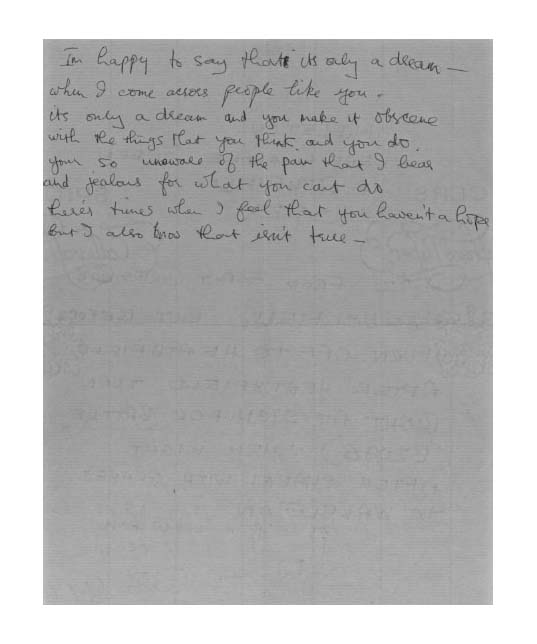
George's recently discovered unpublished lyric
I contacted his widow Olivia, as she had to give me copyright permission to reproduce it. She confirmed that it is George's handwriting and that it does sound to her like his voice, but she knows nothing about it, since of course it was composed long before he met her. I also sent it to George's first wife, Pattie Boyd, who confirmed the handwriting, but had no knowledge of the contents.
I'm now going to hand it over to the British Library to join their Beatles collection. They have examples of lyrics by John and Paul on show in the manuscript room, next to Shakespeare, Magna Carta, Beethoven and Wordsworth, but so far nothing written by George.
These Beatles' lyrics are scraps I picked up from the floor of Abbey Road, which the Beatles said I could have as souvenirs and to help me when writing the section on their music. The cleaners would otherwise have burned them.
I always keep all scraps, notes, letters, documents, tickets, rubbish to do with every book I've done, but of course I wasn't to know that many years later, after Sotheby's held their first auction of pop memorabilia in 1981, they would turn out to be valuable. I thought when I offered them to the British Museum (where they were at first) that it would refuse them, considering them too trivial and ephemeral. In my will I have arranged for them to go the nation.
Olivia and the British Library are pleased that there will now be an example of George's writing, such as it is, in their manuscript room alongside those of Paul and John.
The point of this little story is that 40 years ago I didn't consider this scrap worthy of inclusion in the book. Forty years later, things have rather changed.
One of the many Beatles Brains out there around the world, of which there are now scores, all incredibly clever and learned, will I am sure be able to offer some clues about its contents and background. Who was the girl he was dreaming of? Was it his then wife Pattie or someone else, or someone from his teenage years? Academics will analyse each line, pondering whether any have been taken from elsewhere. What were his poetic influences? Is 'youre so unaware of the pain that I bear' good internal rhyming or is it all highly clumsy and confused and derivative? I'll leave all that to the experts.
Some may mock, but little now surprises me about the continuing interest in the Beatles. In fact, the further we get from them, the bigger they become.


